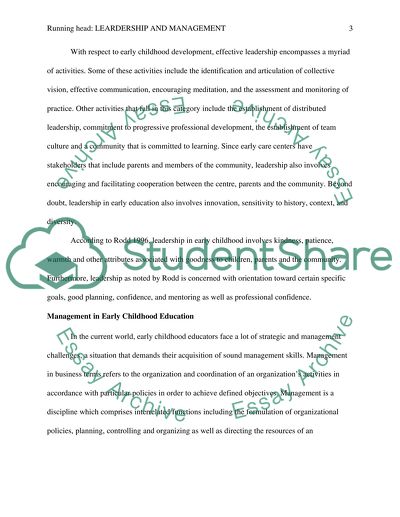Cite this document
(“The Significance of Leadership and Management in Childhood Essay”, n.d.)
Retrieved from https://studentshare.org/environmental-studies/1420415-an-essay-exploring-the-significance-of-leadership
Retrieved from https://studentshare.org/environmental-studies/1420415-an-essay-exploring-the-significance-of-leadership
(The Significance of Leadership and Management in Childhood Essay)
https://studentshare.org/environmental-studies/1420415-an-essay-exploring-the-significance-of-leadership.
https://studentshare.org/environmental-studies/1420415-an-essay-exploring-the-significance-of-leadership.
“The Significance of Leadership and Management in Childhood Essay”, n.d. https://studentshare.org/environmental-studies/1420415-an-essay-exploring-the-significance-of-leadership.


